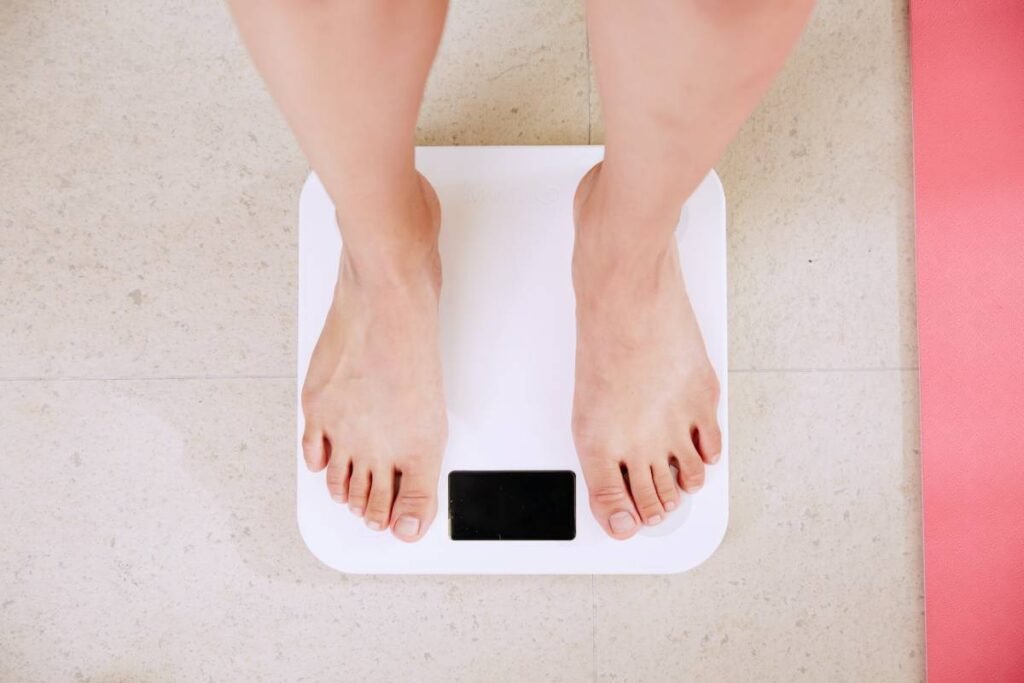The human body—just like our vehicles and other equipment—needs maintenance. Paying attention to your weight is the first level of safety and body maintenance. A healthy weight is an essential indicator that should therefore serve as a compass. Knowing your ideal weight better facilitates daily well-being and significantly reduces the frequency and/or regularity of certain diseases that could be avoided. BMI, BROCA, CREFF indicators… Don’t know your ideal weight? Discover all the information that can help you in this article!
What is a healthy weight?
A healthy weight is a weight that balances your body in every way and is easily manageable for your body. This weight is unique and specific to each individual. It can vary depending on the activities you practice.
According to some psychologists and nutritionists, psychological well-being also influences your ideal weight. Also called “maintained weight” or “healthy weight,” the ideal weight depends largely on:
- your height,
- your gender,
- your weight,
- your emotional feelings,
- Your diet.
These variables have an impact on the calculation of the balance weight.
Your ideal weight naturally increases with age. Whether you’re considered “too fat” or “too thin” by the world, your healthy weight is the only indicator that can tell you whether you’re fit or not.
What are the calculation methods?
The calculation of ideal weight can be obtained from several formulas and scientific methods, which sometimes present fairly approximate results.
The Body Mass Index formula
The Body Mass Index (BMI) allows you to interpret your health based on a ratio that stipulates that a certain weight is required for a given height. Above or below this ratio, you are considered too overweight or too underweight. The BMI calculation is therefore obtained using the following formula: Weight / Height 2
- BMI <18.5, you are too thin
- BMI > 40, this is morbid obesity.
- BMI is between 18.5 and 25, you are at a healthy weight: normal build.
- BMI is between 25 and 40, you are too fat, and you may be severely or moderately obese.
Broca’s formula
Calculate your ideal weight using Broca’s formula. Broca’s formula calculates your healthy weight by subtracting 100 from your height, converted to centimeters.
The CREFF formula
The CREFF formula is the third method for calculating a healthy weight. For CREFF, obtain your ideal weight by multiplying the result of the following calculation by 0.9: your height in cm -100 + your age divided by 10.
How to reach your ideal weight
To achieve a healthy weight, each individual must monitor the above indicators. Your body mass is one indicator, allowing you to know when to lose weight or gain weight.
As mentioned above, your ideal weight depends on your gender, genetics, physical activity, height, and weight. Eating a balanced diet and engaging in activities that can help you burn calories or body fat are therefore ways to achieve your ideal weight.
Remember that a healthy weight is also a matter of feeling. Maintaining a positive and consistent emotional state will help you reach your ideal weight.
Less stress, less fat, and a balanced diet are permanent tips for reaching and maintaining your ideal weight.
Relationship between weight and height?
The relationship between weight and height is indicated by your body mass. Indeed, it is important that there is a balance between your weight and height. If there is an imbalance, appropriate measures must be taken to improve it.
Interpreting your body mass index indicates whether your body is suffering from malnutrition, obesity, overweight, or underweight. In short, the relationship between your weight and height provides information about your body’s nutritional status.
Understanding this relationship helps you adjust or maintain a healthy weight. Are your current weight and height in line with each other and perfect harmony? This question is often answered by the body mass index, which establishes the relationship between your weight and height.
What other factors should be considered?
To know your ideal weight, it is important to also take into account factors such as muscle mass, your body shape, your medical history, and many other factors.
If you’re fairly muscular or a weightlifter, you have a significant amount of muscle mass. To feel fit, you need to burn a certain amount of fat and get plenty of physical activity. Rebalancing your diet is therefore essential.
Your age is also a major factor in your healthy weight. The older you get, the more you need to rebalance. The energy expenditure of a man over 40 does not require the same nutritional adjustments as that of a man under 40.
At a certain age, women and men may be prone to certain vascular and cardiovascular diseases, particularly hypertension. The intervention of nutritionists and dietitians is highly recommended for the management of these cases.
What are the different body shapes?
Calculating your ideal weight also depends on your body type. There are three different body types. Each body type must take into account the relationship between weight and height. To classify a body according to a body type, nutritionists and dietitians interpret the body fat mass index in addition to the body mass index.
- Ectomorph body type: These are individuals with long arms and legs. Individuals with an ectomorph body type are naturally slim.
- Endomorphic body type: Individuals with an endomorphic body type are people with a generous figure. They have a bulky body and considerable weight. This slows down the metabolism, resulting in a storage of fat, sometimes leading to moderate obesity when the body fat index is high.
- Mesomorph body type: This is the morphological configuration of individuals with a dynamic and athletic build. Mesomorphs have considerable muscle mass. These bodies easily transform fat into muscle through well-developed physical exercises.

